Anora, Anora, Anora! I’ve been shouting this film’s praises from the rooftops ever since seeing it at its premiere at Cannes. To be fair, I knew I would like it before I saw it; I’ve never seen a Sean Baker film I didn’t like, and he was one of the directors I was most excited to see at this year’s festival. By the time the credits rolled I stood up with wet eyes, hooting and hollering with the rest of them for most of the 10 minute standing ovation.
“That movie was made for you, huh,” my ex said as I found him in the lobby of the Lumiere Theatre (as it is said, the best screen on Planet Earth), giddy and drunk with love for Baker’s film. Outside, we noticed some of the supporting characters having a cigarette and shared smokes (I am not a smoker but I will smoke for CINEMA *insert expressive Italian hands emoji*). They were exactly as they seemed in the film: working class kids from Brooklyn and immigrants from post-Soviet Eastern Europe, one with tattooed fingers and grills on his teeth who, if memory serves, was disappointed to hear I lived in Philly, negged me about my slight accent in Russian, and wanted us to party in Bushwick.
Alas, we did not party in Bushwick. These kids were literally teenagers. But the whole frenzied, jubilatory experience brought me even more appreciation for Sean Baker’s uniquely maximalist neo-realism. Even his most outrageous films (Red Rocket, Tangerine, and, yes, Anora) have strong documentary qualities: usually, every character except the protagonist would play a version of themselves, à la Buñuel’s Los Olvidados, Truffaut’s 400 Blows, Hani’s Bad Boys, De Sica… you get the idea. Baker is also known for intensively researching the milieu he is filming, and collaborating with those who are more familiar with the language or culture at hand. It’s deeply ethnographic, but not exploitative. Anora is shot in a real strip club (HQ) and features real New York-based strippers (including Luna Sofia Miranda, a personal favorite of my friend B, and who is apparently super well known in the community!). Another example: Baker co-directed his first film Take Out, on the exploitation of illegal immigrants from China in the smuggling business and restaurant industry (leading to an endless cycle of increasingly sky-high debt), with Taiwanese-American filmmaker Shih-Ching Tsou. She continues to produce most of Baker’s films.
Take Out, like most Baker’s films, has a very high “cringe” factor: most films are character studies of deeply flawed, charismatic, and over-the-top individuals making extremely bad choices. The experience of watching Take Out is surprisingly similar to watching Uncut Gems, except for the fact that the protagonist is an underdog and you’re rooting for him at all times, even with his bad choices. These are normal human people, experiencing normal human suffering and normal human reactions, whether they’re a takeout delivery worker, a porno star, or a stripper. Underneath Baker’s dry documentary sensibilities is a profoundly empathetic base. You can tell that the writer-director is rooting for these characters as much as you are, whether in the golden, smoggy streets of south-central LA (Tangerine), the swampy, dilapidated strip malls of the gulf Texas coast (Red Rocket), a cheap motel on the outskirts of Disneyworld (Florida Project), the overwhelming and delicious chaos of Chinatown (Take Out), or a half-glittering half-seedy strip club in Manhattan (Anora).
For me, Anora took the gritty experimental quality of Baker’s earlier films and filtered it through a more audience-friendly fucked-up version of a Cinderella Story/updated Perfect Woman: a Russian-American (possibly Uzbek?) stripper (“Ani”) marries a sprite-like son of a Russian oligarch. The son, Vanya Zakharov (played by Russian actor Mark Eydelshteyn), is one of my favorite parts of the film: Eydelshteyn (who, like the character of Zakharov, is also Jewish— note the menorah Ani wields as a weapon in the Zakharov mansion) plays Vanya as a kind of excitable, innocent fairy-boy (something about him reminds me of the first boy I ever dated, with almost identical hair and a fey, cute dorkiness that was described as “soooo random” in the early aughts). I am stuck on a particular scene of Vanya performing a somersault in bed because he is so excited to finally sleep with Ani. From the getgo, though, Baker makes it clear that this spritely Richie Rich is too spoiled and removed from reality to be in charge of such cataclysmically large amounts of wealth.
My very favorite part of the film, though, is Yura Borisov, who plays Igor, the Henchman with a heart of gold. Outlets have been constantly reporting on Borisov acting in pro-Putin films, but I only remember him from one of my favorite films of all time, a film that, similar to Anora, left me frozen, mouth agape, unable to move until the entirety of the ending credits: Captain Volkonogov Escaped (Natalya Merkulova and Aleksey Chupov, 2021).
Captain Volkonogov Escaped is the antithesis of a pro-Putin film. It is extremely anti-Stalin, and I remember being shocked that it was actually made in Russia. I saw it at the first post-(?)pandemic Philadelphia Film Festival, and can’t stop talking about it to this day. In this film, Borisov (who, by the way, is a dead ringer for Mayakovsky in the famous photos of his head shaved, see below) is the star, playing the eponymous Fyodor Volkonogov, a Captain (read: henchman) in the Soviet NKVD. But instead of intelligentsia, he is one of the men in charge of performing the bloody work the Soviet government officials themselves get to avoid during Stalin’s Great Terror in 1937-1938: actually murdering people. Volkonogov is having a pretty ok time performing various extravagant masculinities with his red-panted compadres (even singing in the NKVD Henchman Choir), but suddenly he sees an apparition: a messenger from the afterlife appears to him, telling him that unless he is able to be truly forgiven by the family of one of his victims, he will rot in hell forever. So, the henchman spends the rest of the film facing his crimes and begging people to forgive him (which, you can imagine, they are quite reluctant to do), while he comes increasingly under suspicion by government apparatchiks and runs away in expert action-movie mode. I can only imagine that Baker saw this film and wanted Borisov’s Mayakovskian physique in his own film, playing the exact same henchman with a heart of gold. I was so excited to see him I yelped and made some kind of exceptionally girly “eeee!” sound in my seat.

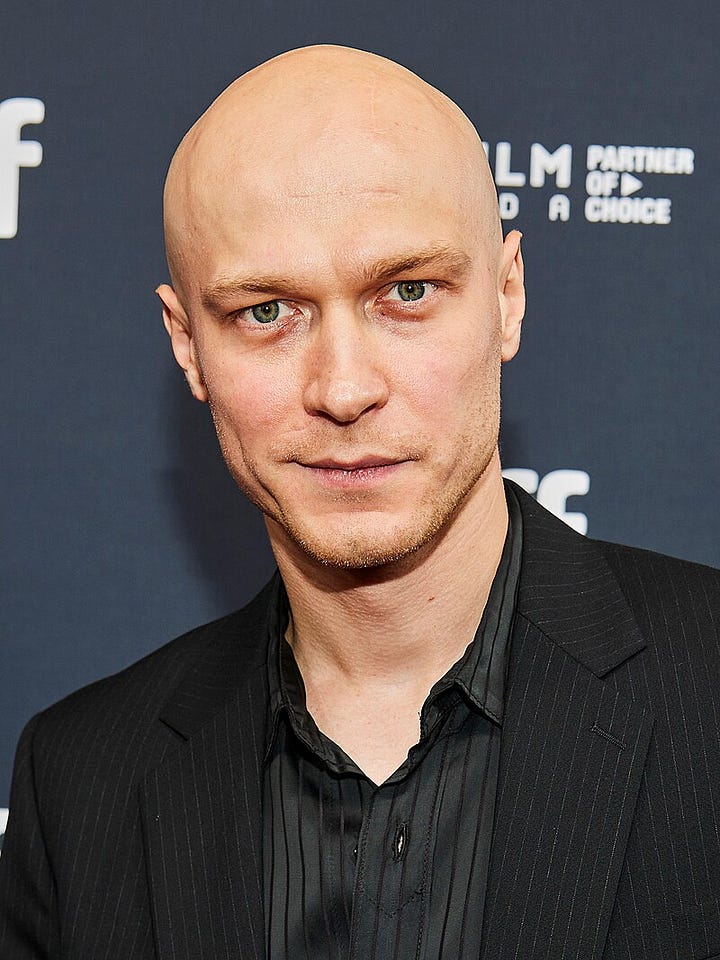
The inclusion of Russian actors in the film has come under fire by several news outlets (including a post-Soviet Jewish scriptwriter who suspiciously calls himself “Latvian” [eyeroll] in a NYT editorial). The unfortunate fact is that, Russian state of affairs being what they are, it is impossible to actually speak against Putin’s totalitarian regime without facing career death or worse. Rejecting any Russian actor writ large (especially playing versions of themselves in a film that is extremely anti-oligarch, with the Russian families being presented as rich, deliciously horrifying caricatures of greed and utter selfishness) on the basis of their nationality is like rejecting the use of American actors in foreign films (glass houses, stones, etc). It is not surprising to me that the newspapers, journals, and websites most up in arms about the inclusion of famous Russian actors are also the mouthpieces of an increasingly fascist-collaborationist neoliberalism. Can we, really, critique the actor’s silence when so few of us do anything more substantial than posting anti-Musk memes on social media? It is precisely here, and now, when the message of Captain Volkonogov Escaped is most pertinent: if we do not face our own complicity, how can we ever live with ourselves?
Of course, Anora is not an especially political film. But there are extremely detailed and realistic aspects of the film that especially impressed me as a post-Soviet immigrant, and that might have been lost on the average American viewer: the fact that both Vanya and Ani were (probably, in Ani’s case, Bukharan) Jewish, but Ani’s Uzbek name would have immediately rendered her “lower class” in the eyes of Vanya’s family; the fact that the henchmen aside from the typically Russian muscle-man Igor are all Armenian, and the only genuinely religious people in the film; the subtle class and ethnic outlying-republic solidarities between Ani and henchmen Toros and Garnick despite their fighting; the fact that Vanya’s oligarch patriarch father is played by Aleksei Serebryakov, the lead in the scathingly anti-Putin/anti-Russian film 2014 film Leviathan by Andrey Zvyaginstev; the seemingly-subtle aspects of Vanya’s mother’s costuming and acting style that made her somehow the most hateful person alive (and I already have some kind of strange antipathy to any Russian woman named Galina, no offense), and made Ani’s barbed retorts to her insanity that much more satisfying. In fact many of my fellow post-Soviets reached out to me to say just how pleasurable it was to see Ani talk back to such awful but realistic caricatures of post-Soviet parental units!
All this to say, I think Anora might be one of my absolute favorite contemporary films. There are of course things to disagree with— Baker’s labor practices recently came under fire (although I have a feeling that the decision to go non-union had to do with his preference for hiring non-professionals)— but I’ve been waiting for Baker to win an Oscar for years, and I’m so glad it was for this film. The critique of using Russian actors, though, is, pardon my French, absolute bullshit. In fact, I had a lengthy, heated argument with a certain Russian (from Russia!!) academic at Cannes who disagreed with the film for “portraying Russians in such a negative way, especially at this point in time.” WHAT. (As you can imagine, that discussion did not go well, especially after said academic and their Russian-from-Russia spouse called me stupid for being a socialist, and that, and I quote, “only capitalism can solve climate change.” Let’s just say that my Mars in Aries definitely came out with guns blazing…)
Anyway, feel free to send this post to any Anora-nonbeliever. I’ll recite the gospel of Baker until the cows come home. <3
Also, ok, I did promise a list of non-Anora post-Oscars suggestions. Here are other films that deserve your attention!
Beautiful, gripping, horrific film about a family caught in the early years of Brazil’s military dictatorship, and specifically a family member who is cruelly interrogated and imprisoned for even subtly helping a resistance movement. I think it is no accident that the film was made precisely at this moment, as we Americans are so, so close to this kind of barbarism today. The film forces us to reckon with this difficult truth, and asks: how do we want to be remembered?
This Iranian film was nominated for Best International Feature and although it is probably 45 minutes longer than it should be, it is brilliant and harrowing (see a pattern?). Here, a father, recently appointed to a top investigator role, starts accusing his own family (a wife and two daughters) of treason when his gun goes missing. A film that forces us to confront the bad politics of our close family members, arguing that even fathers will not save you when their ideology renders you perpetually subservient to both him and the state. Also: Rasoulof literally had to smuggle this film out of Iran and had to literally escape the country, throwing away his phone and other electronic devices and escaping in the mountains on foot, in order for it to premiere at Cannes.
A gorgeously shot film based on the Colson Whitehead novel. Yes, beautiful, yes, harrowing. The film has a strong vintage and intimate feel because of the richness of the film stock and the 4:3 aspect ratio, which is definitely a tendency of many indie films these days. The film is mostly shot from the individual characters’ perspectives, which can feel a little gimmicky but I actually quite liked it. Also has a quasi-documentary style with interviews (the book is based on real people, places, and situations), which I also really appreciated. I fall very heavily on the side of pro-formal experimentation whenever I see it, and am very happy it had such a wide release for an experimental film.
Winner of Best Documentary Feature, this collab between Palestinians and Israelis documented the destruction of the village Masafer Yatta in the occupied West Bank, and the activist Basel Adra’s attempt to use social media to bring awareness to the horrible things happening to his family and neighbors as they attempt to rebuild their homes, over and over again. It brings me some hope that even in the ridiculous times we live in, where Trump’s government just revoked $400 million in federal grants for my alma mater for alleged “antisemitism” (when said antisemitism was in fact often led by actual Jewish students!!), that this film won one of the most coveted awards in the world, whose humanity flies in the face of such Trumpian doublespeak. My favorite part of the film, though, might be the bromance between Basel and anti-Zionist leftist Israeli Yuval. At one point Basel even asks Yuval, jokingly: “so, when are we gonna get married?” and my heart fluttered.
Other films: Soundtrack to a coup d’etat was also very good and I described it earlier on this Substack; same with Memoir of a Snail; Brutalist was far too long, and with an egregiously bad last act, but had good music and visual design; Emilia Perez was fun, I don’t get the hate but also thought it was relatively forgettable; I’ve described The Substance in one of my earliest posts as Brat-ified Tetsuo; A Real Pain would have been good if it wasn’t so obsessed with being an advertisement for the country of Poland; Dune: Part II was better than Part I but it’s just not my thing, and I don’t find Ti-mo-thaaay that interesting or compelling as an actor; I absolutely hated Girl with a Needle and thought it was weirdly anti-abortion, and then I saw it was co-produced by Poland and thought, “that makes sense.” I did not see Wicked.
See everyone next week for Good Things Part X! And if you want to ask a question for the advice column, here’s the link.
Keep fighting the good fight. xo-J





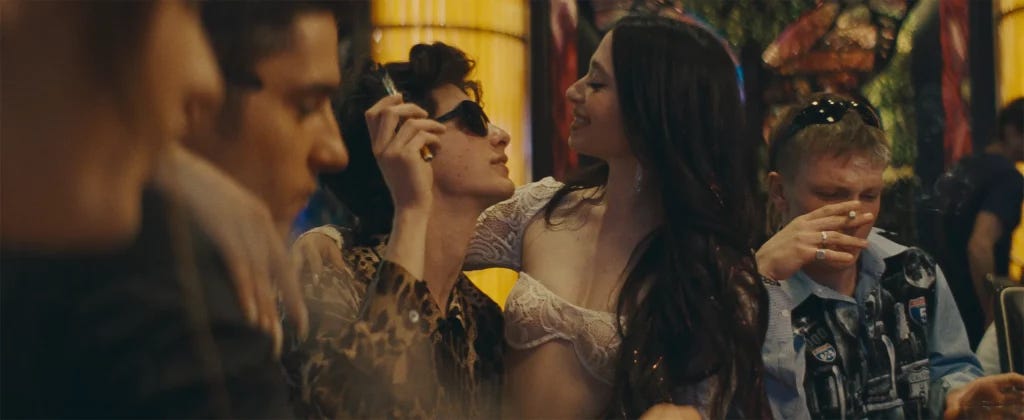

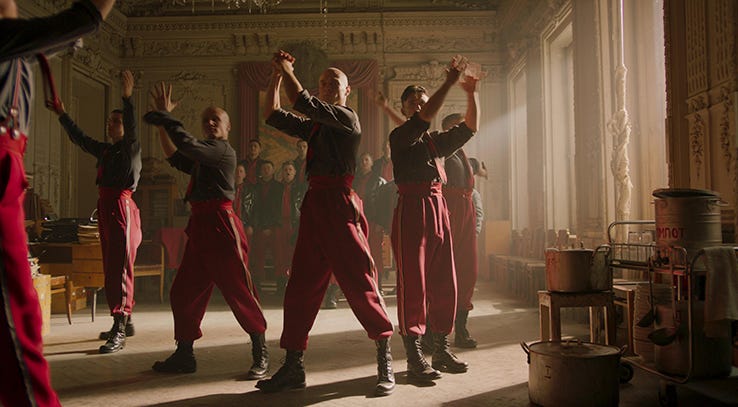
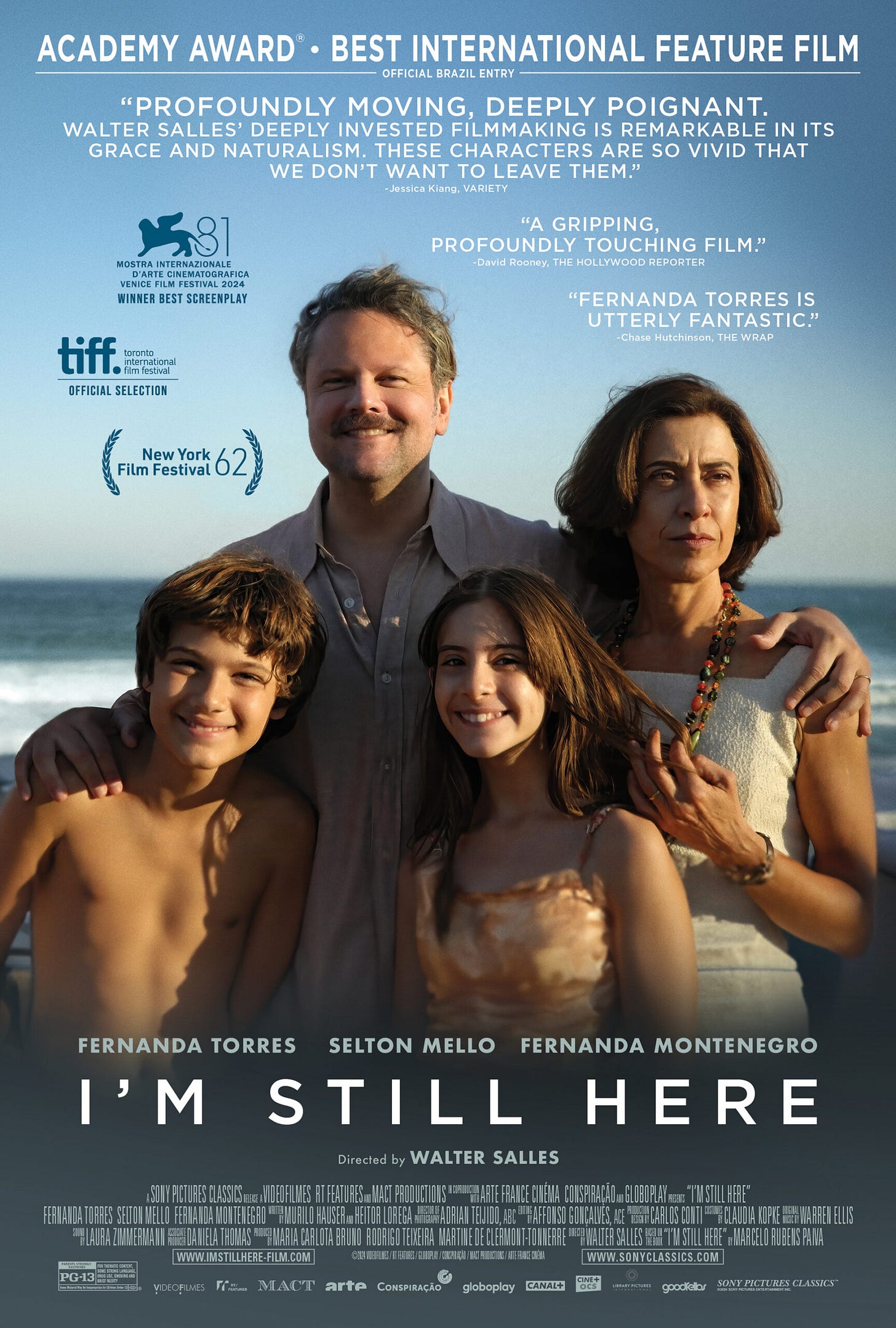

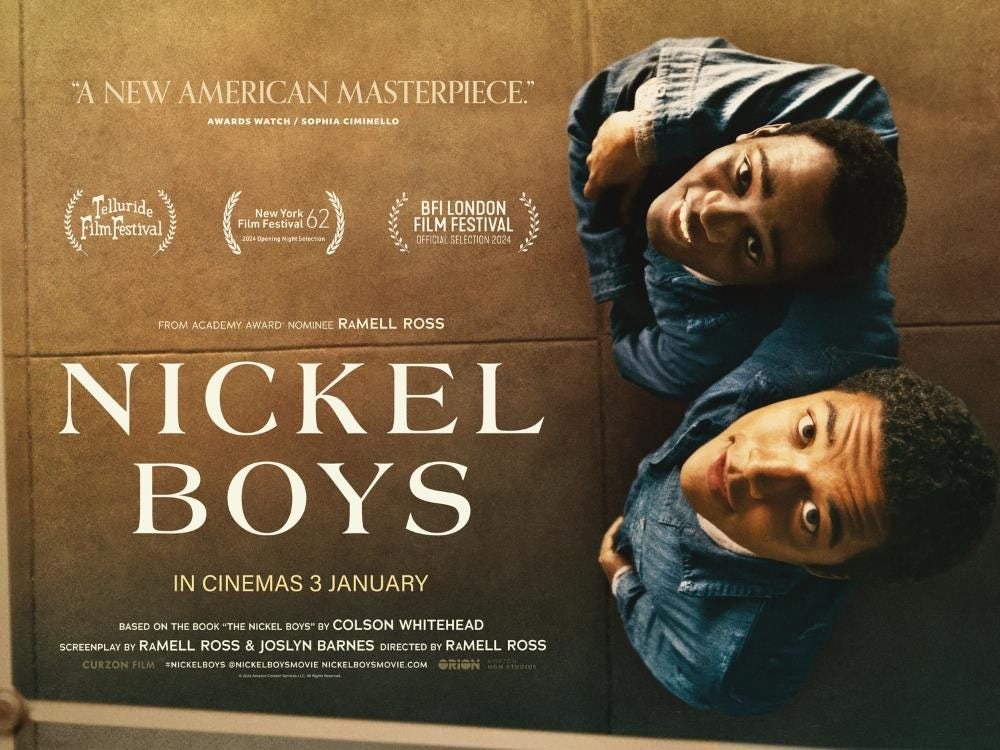
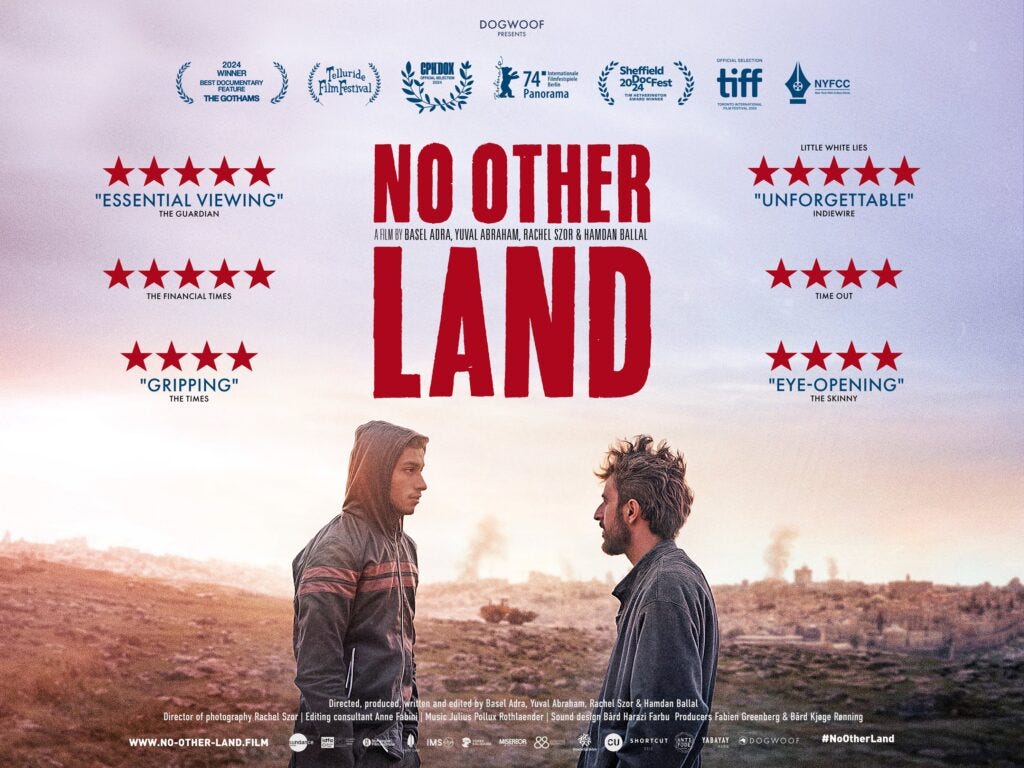
Omg, someone else who actually Got It ™️ in regard to Anora!!